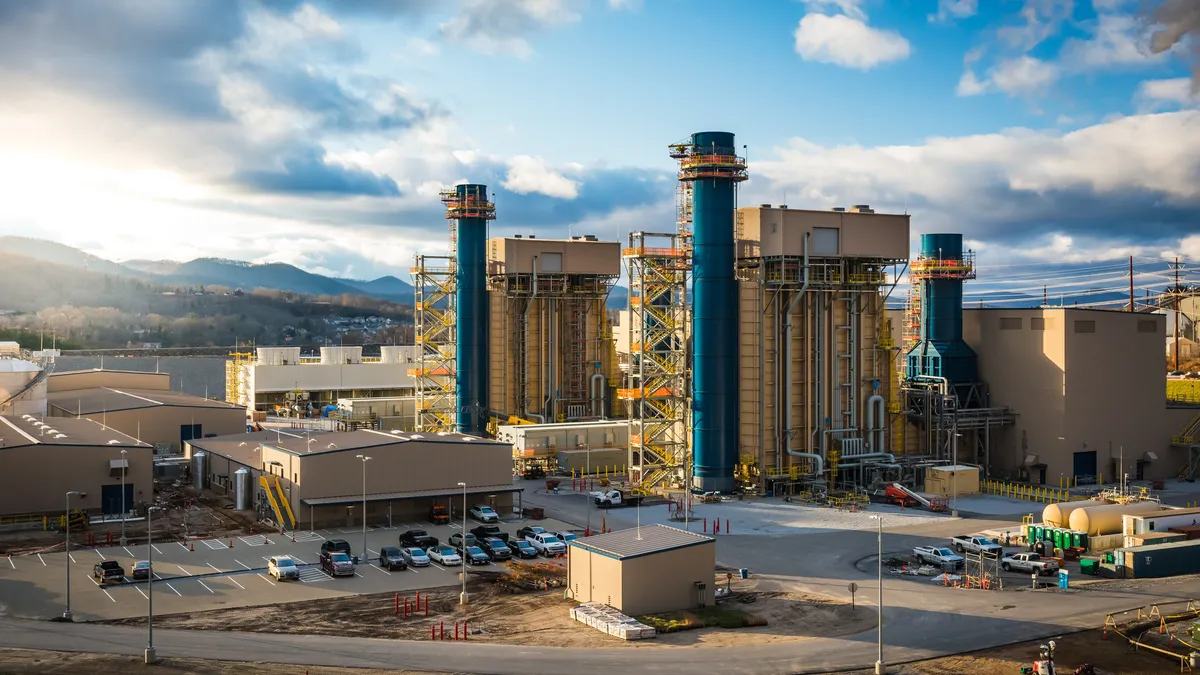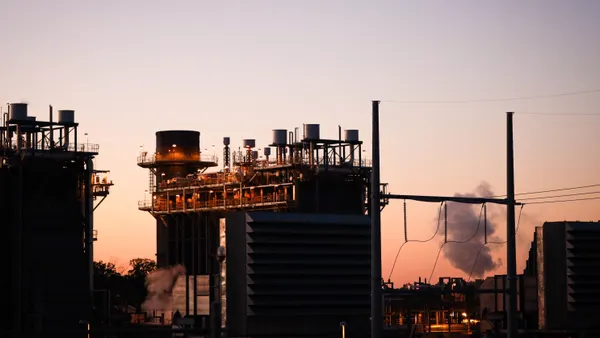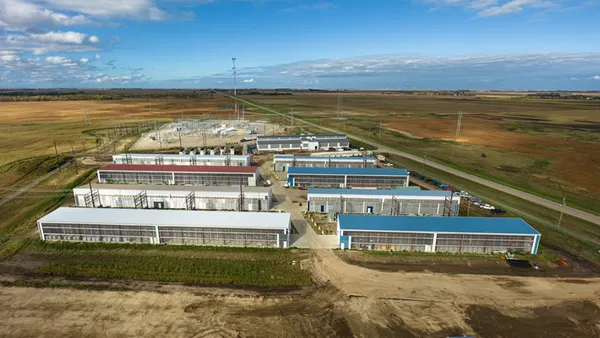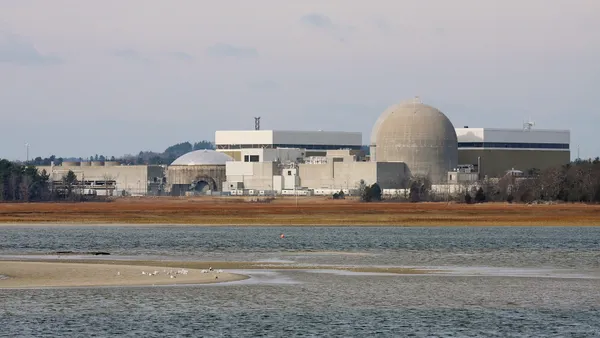Dive Brief:
-
North Carolina regulators on Friday ordered Duke Energy Progress and Duke Energy Carolinas to file a carbon reduction proposal for its power plant fleet by April 1. The agency is required to issue a final plan by the end of next year.
-
In a separate decision Friday, the North Carolina Utilities Commission (NCUC) declined to accept the power supply portfolio portion of the long-range resource plans for the Duke utilities, saying power plant retirement and resource addition targets will be mapped out in the upcoming carbon reduction plan.
-
In a move that could affect Duke’s resource selections, the commission ordered the utilities to revise how they model future natural gas prices and how gas prices could be affected if there are limited gas supplies, according to Maggie Shober, director of utility reform at the Southern Alliance for Clean Energy (SACE).
Dive Insight:
North Carolina and its major utilities, with input from stakeholders, are starting to draft plans to slash greenhouse gas emissions from the state’s power plant fleet. One of the key questions is what role natural gas-fired power plants will play in the state’s future.
Duke Energy Progress and Duke Energy Carolinas, utilities with a total of about 4.3 million customers in North Carolina and South Carolina, filed biennial integrated resources plans last year with state regulators. In the 15-year plans, the utilities presented scenarios for cutting greenhouse gas emissions from their power fleet 70% by 2030.
The utilities owned 32,821 MW at the end of 2020, with coal- and gas-fired plants making up 62% of the capacity, followed by nuclear at 27% and hydroelectric and renewable resources at 11%, according to Duke Energy’s most recent annual report.
Near the end of Duke’s latest resource planning cycle at the NCUC, Gov. Roy Cooper, D, signed a bill that requires the NCUC to take "all reasonable steps" to cut Duke’s greenhouse gas emissions in the state 70% below 2005 levels by 2030. The agency must develop a carbon reduction plan for the two Duke utilities by the end of 2022.
The NCUC directed the utilities to use their just-completed IRPs to inform their carbon reduction plans. The agency is considering a request by the Duke utilities to hold a joint proceeding on the carbon plan with the Public Service Commission of South Carolina.
While it declined to fully accept the Duke utilities’ long-range IRPs, the NCUC offered guidance on several issues for the upcoming carbon plan and future resource plans.
The commission ordered two changes to the way Duke considers natural gas pricing in its models for the 15-year planning periods.
First, the NCUC directed the utilities to only use forward natural gas pricing looking out over eight years instead of a decade. The rest of the 15-year outlook must be based on a "fundamental" analysis that considers supply and demand forecasts, the NCUC said.
Duke’s practice of using forward pricing over a decade is outside general utility practice and tends to result in lower-priced and less volatile natural gas forecasts, which in turn makes natural gas-fired generation more attractive compared to other resource alternatives, according to SACE’s Shober.
The NCUC also accepted an agreement that the Duke utilities would include at least one scenario in their upcoming analyses that includes limited gas supplies for their power plants.
The guidance is important because Duke and other utilities in the Southeast are planning on adding natural gas-fired power plants to their portfolios, which potentially exposes ratepayers to higher and more volatile electricity bills, Shober said.
Natural gas prices will likely fluctuate more in response to increased extreme weather, according to Shober.
The utilities should also continue to refine their analysis for finding optimum retirement dates for their coal-fired power plants, according to the NCUC.
"The companies should also attempt to identify – with as much specificity as is possible in the circumstances – all major transmission and distribution upgrades that will be required to support the alternative resource portfolio(s) along with the best current estimate of costs of constructing and operating such upgrades," the NCUC said.
The commission also directed Duke to refine its import capability studies for capacity purchases from the PJM Interconnection.
The directive to consider what transmission upgrades will be needed will help make sure the carbon plan is "an affordable, ... holistic process that allows every ratepayer in North Carolina to have the best sort of outcome," Ben Smith, regulatory council for the North Carolina Sustainable Energy Association, said.
The NCUC rejected calls to require Duke to conduct all-source solicitations for its upcoming resources needs, saying it may be too time consuming to develop those processes while also crafting a carbon reduction plan. The agency, however, said it might revisit the issue.
Looking ahead, the NCUC has established an aggressive timeline for developing a carbon reduction plan, with at least three stakeholder meetings set to be held before Duke files a proposed plan in April, Smith said.
Given the pending workload, the NCUC delayed the IRP cycle by a year, with the next utility resource plans due in September 2023.














